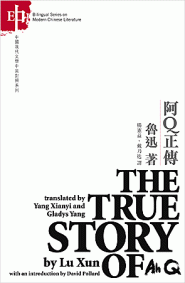
Likely the only painting of Matteo Ricci while in China.
The following is an account of the first foreigner to create a meaningful and harmonious relationship with the Chinese people. Matteo Ricci’s aim was to reach out to the entire nation, and his influence had even reached the Wanli Emperor of the Ming Dynasty (1572 – 1620) whom he had befriended. His story should be studied by any individual interested in doing business in China. In fact, his method for creating a healthy relationship with his counterpart is relevant for working with any foreign nation. Many businesses have had success implementing the Cultural Accommodation policy of Alessandro Valignano and Matteo Ricci, such as Starbucks and KFC. The idea is to warmly reach out to the counterpart rather than being forceful. Westerners today trying to do business in China may naturally be inclined to use coercive methods to be persuasive; however, Chinese people tend to take things slower and are more delicate in their ways of communicating. Let’s read to understand how Matteo Ricci overcame this cultural difference. Continue reading
 Anchor babying or baby tourism is such a shameless concept in China that networks running these operations are blatantly advertising their services on social media apps and all across the Chinternet (中国特色互联网 “Internet with Special Chinese Characteristics” – a play on 中国特色社会主义 “Socialism with Special Chinese Characteristics”). In this article, we will take a look at one organization called “Sister Fei’s American Childbirth Center” (菲姐美国月子中心 fēijiě měiguó yuèzi zhōngxīn) or also called “US Baby.” With customers paying as much as $10,000 to $50,000 or more for the service, the organization could be making millions of dollars a year for the illegal immigration practices.
Anchor babying or baby tourism is such a shameless concept in China that networks running these operations are blatantly advertising their services on social media apps and all across the Chinternet (中国特色互联网 “Internet with Special Chinese Characteristics” – a play on 中国特色社会主义 “Socialism with Special Chinese Characteristics”). In this article, we will take a look at one organization called “Sister Fei’s American Childbirth Center” (菲姐美国月子中心 fēijiě měiguó yuèzi zhōngxīn) or also called “US Baby.” With customers paying as much as $10,000 to $50,000 or more for the service, the organization could be making millions of dollars a year for the illegal immigration practices. 

 Experts know that shark fin soup 鱼翅汤 (yú chì tāng) is a traditional and regal dish, as the delicacy received mention in the imperial history books called the 《宋会要》 (sòng huì yào). In the recent past, this dish was impossible for the average person to try. Thanks to China’s opening up to globalization and a more capitalist market, every Chinese person with a few extra dollars can have this imperial dish. “Everyone can live like an emperor if they want” is the way of the modern Chinese lifestyle. At large family gatherings, such as weddings, the father–and others–would like to foot the bill for an extravagant portion of
Experts know that shark fin soup 鱼翅汤 (yú chì tāng) is a traditional and regal dish, as the delicacy received mention in the imperial history books called the 《宋会要》 (sòng huì yào). In the recent past, this dish was impossible for the average person to try. Thanks to China’s opening up to globalization and a more capitalist market, every Chinese person with a few extra dollars can have this imperial dish. “Everyone can live like an emperor if they want” is the way of the modern Chinese lifestyle. At large family gatherings, such as weddings, the father–and others–would like to foot the bill for an extravagant portion of 


